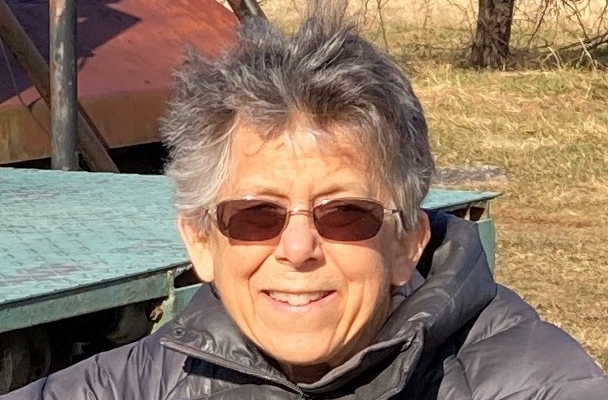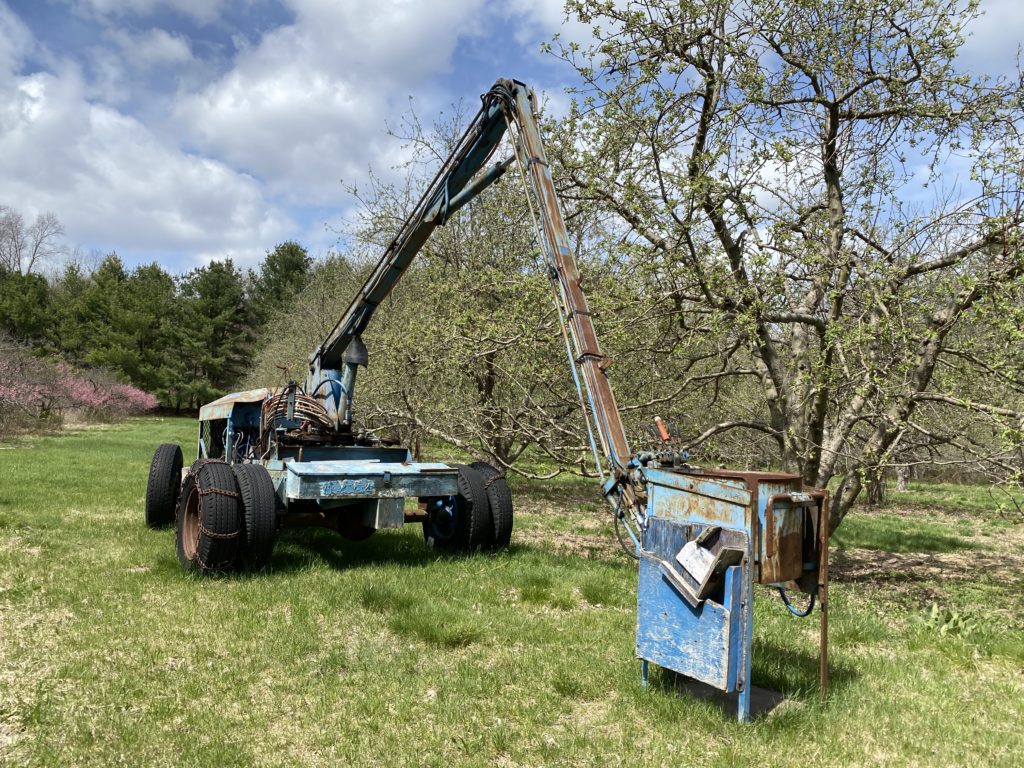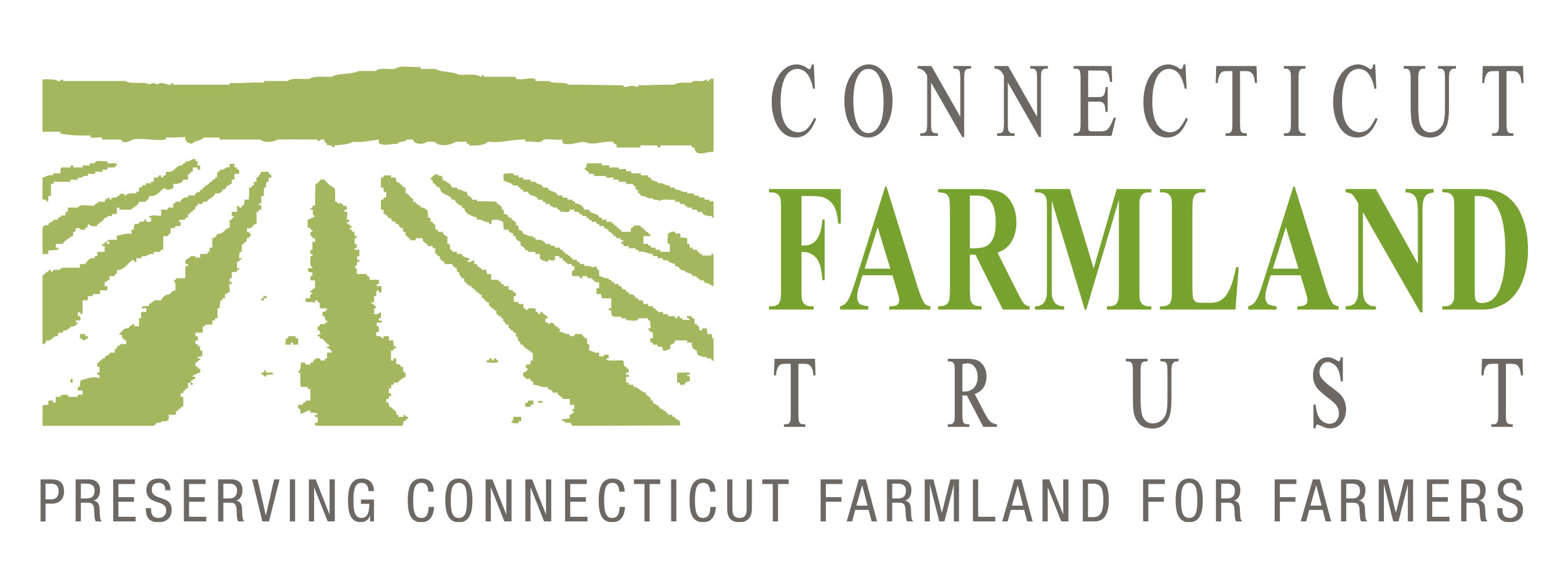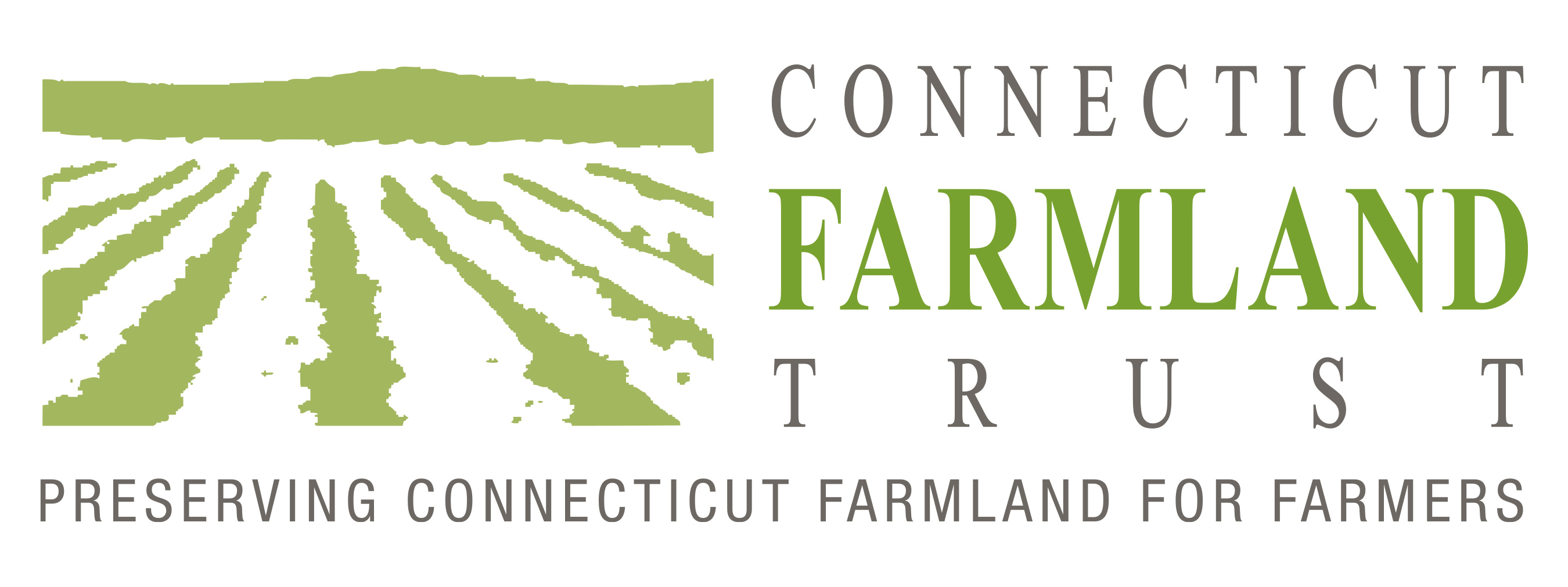by Kimball Cartwright, Director of Development
Protected farmland benefits everyone. Yet protecting farmland is also a deeply personal decision for the farmer. I’ve often wondered, “What does that decision look like from the inside?”

A month ago, I took a walk with Joan Barney, who with her brother David dreamed about protecting their family farm, Lakeview Orchards in Easton, for years. They finally fulfilled that dream when they closed on the sale of an agricultural easement in 2021 that will permanently protect the land as farmland. Joan confessed it wasn’t easy to get started protecting their farm before Connecticut Farmland Trust (CFT) got involved.
“One of the most difficult things to wrap your mind around as a farmland owner, is what it means to sell or donate your ‘development rights,’ you are exchanging something highly conceptual instead of something tangible”
– Joan Barney
Joan’s grandparents emigrated to the town of Fairfield from Hungary where they rented an apartment and gradually saved enough money to buy some land in Easton. Joan’s grandfather was a carpenter and built one of the houses on the property. Joan’s grandmother raised chickens for eggs for the family, a couple cows for home milk consumption, and turkeys for sale.
Joan’s father was born around 1919 and grew attached to the soil quickly, learning how to run an orchard from Aspetuck Orchards in Easton. Though he did not have advanced schooling, he taught himself enough to cultivate apple and peach trees and invented a lot of the farm equipment he used.

The 37-acre farm was named Lakeview Orchards because it had a great view back in the 1940s or so of the Easton Reservoir, prior to the trees growing up around it. The reservoir has changed hands a couple of times and the State of CT now owns it, part of its Centennial Park.
As we rounded a large barn full of apple crates, headed to the peach trees, Joan offered that the idea of tearing down the fruit trees and replacing them with fancy houses every five acres was an incredibly emotional image. Then she confided that before learning about land conservation programs available in Connecticut, she didn’t know any options to ensure the land would be kept in farming.
Kathleen and Elisabeth from CFT met with Joan and David, and many other people, to find the resources needed to buy an agricultural easement on the land. Ultimately, CFT, the Town of Easton, a committed group of volunteers on the Easton Agricultural Commission, the USDA Natural Resources Conservation Service, and CT’s Department of Agriculture joined together to preserve the farm. Lakeview Orchards is now protected as farmland in perpetuity.
As we finished the tour, Joan offered that Kathleen and Elisabeth’s ability to weave together multiple partners behind the scenes while giving her the time she needed to make her personal decision made it easy to decide.
“It’s a deeply personal decision” Joan noted, when we walked by some very tall spruce trees which Joan noted were what remained of her father’s experiment in growing Christmas Trees on the farm. Joan explained.
“Keeping the land in farming is not exciting, it is just a good thing, the right thing”
– Joan Barney
CFT supporters can take pride in helping both Joan and David preserve an historic family farm in one of the last two agricultural communities in Fairfield County. Thank you again to CFT supporters who contribute to our partnership-focused approach to protecting farmland!


